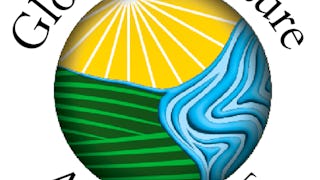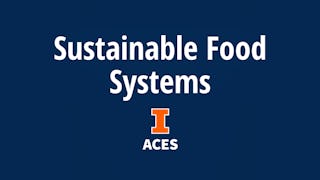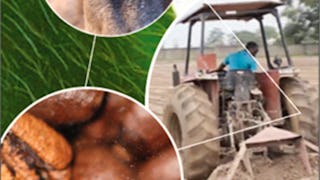In diesem Kurs werden Sie mit den Ideen des Wasser-Energie-Nahrungsmittel-Nexus und des transdisziplinären Denkens vertraut gemacht.
Sie werden lernen, Ihre Gemeinde oder Ihr Land als ein komplexes sozial-ökologisches System zu sehen und seinen Wasser-, Energie- und Nahrungsmittelstoffwechsel in Form eines Musters zu beschreiben sowie die Kategorien der sozialen Akteure zu kartieren. Wir geben Ihnen die Instrumente an die Hand, um die Nexuselemente zu messen und sie auf kohärente Weise über Skalen und Dimensionen der Analyse hinweg zu analysieren. Auf diese Weise wird Ihre quantitative Analyse für eine fundierte Entscheidungsfindung nützlich. Sie werden in der Lage sein, die Abhängigkeit von nicht-erneuerbaren Ressourcen und die Externalisierung von Umweltproblemen auf andere Gesellschaften und Ökosysteme (eine beliebte "Lösung" in der westlichen Welt) zu erkennen und zu quantifizieren. Praktische Fallstudien, sowohl aus Industrie- als auch aus Entwicklungsländern, werden Ihnen helfen, den Stand der Dinge in einer bestimmten Gemeinschaft oder einem bestimmten Land zu beurteilen und mögliche Lösungen zu bewerten. Nicht zuletzt werden Sie lernen, drängende sozial-ökologische Themen wie Energiearmut, Wasserknappheit und Ungerechtigkeit aus einer radikal anderen Perspektive zu sehen und alles zu hinterfragen, was man Ihnen bisher erzählt hat. Danksagung Ein Teil der vorgestellten Ergebnisse und Fallstudien wurde im Rahmen von zwei Projekten entwickelt: MAGIC und PARTICIPIA. Der Kurs spiegelt jedoch nicht die Ansichten der finanzierenden Institutionen oder der Projektpartner insgesamt wider, und die Fallstudien wurden ausschließlich zu pädagogischen und illustrativen Zwecken präsentiert.

















